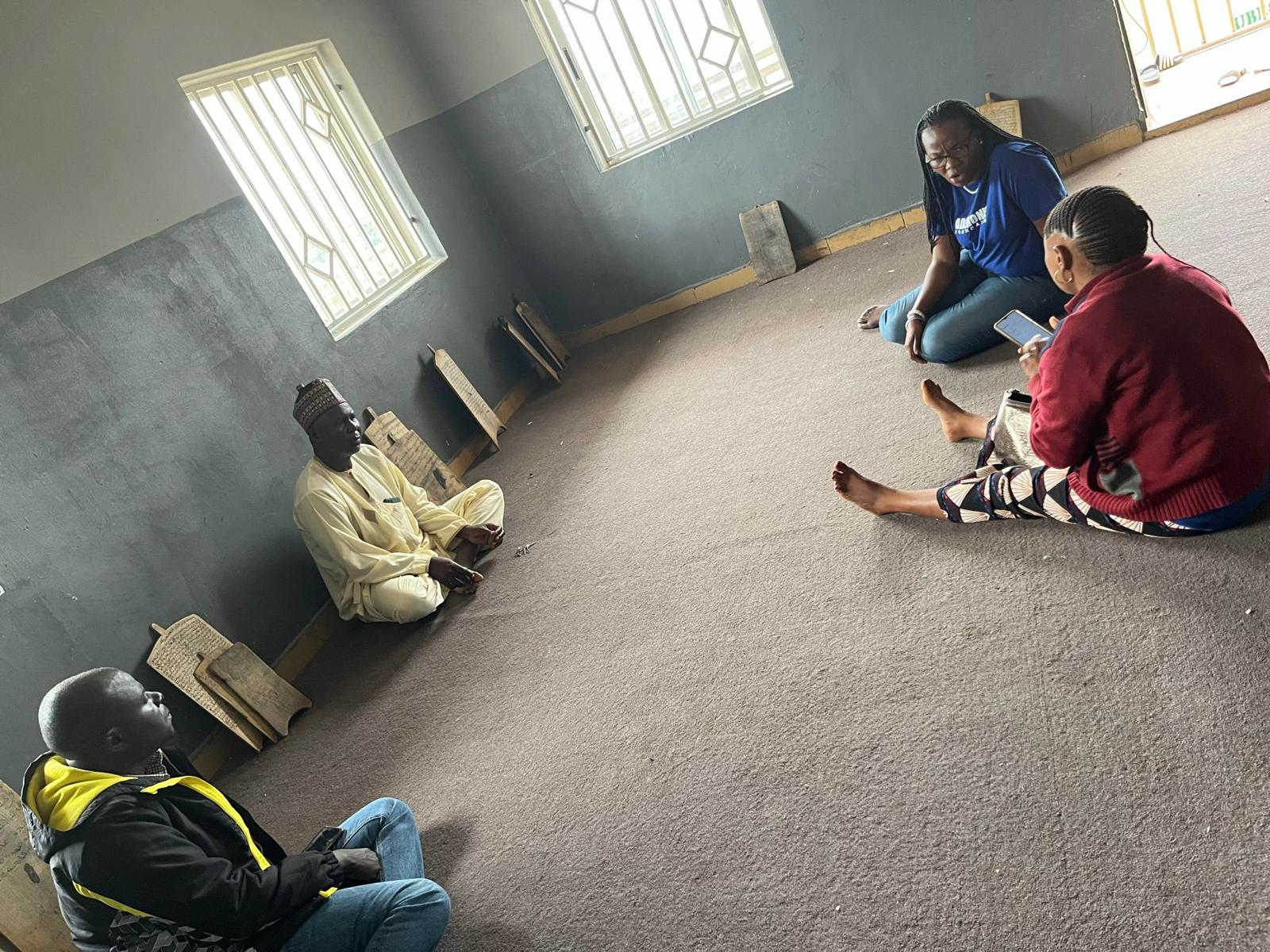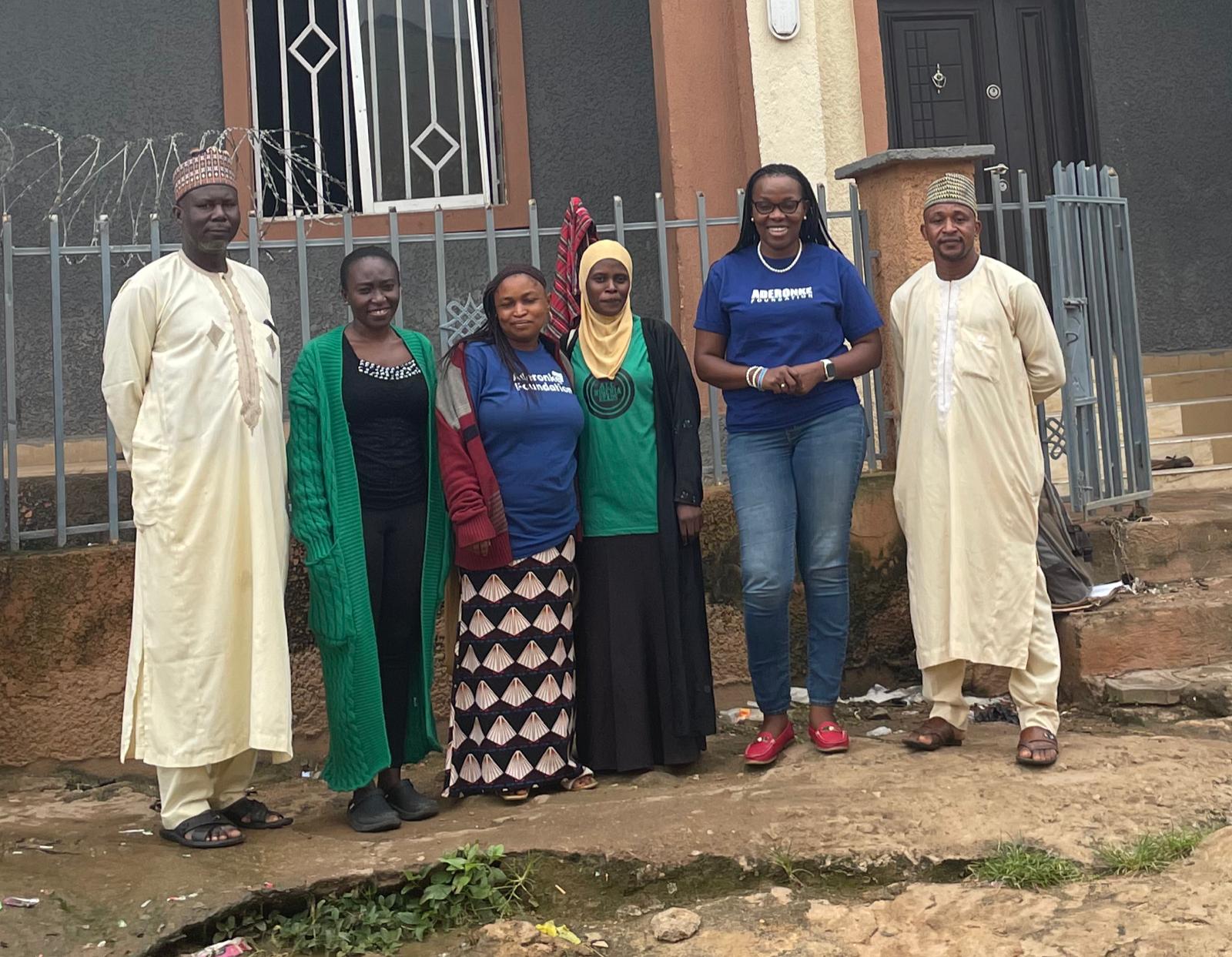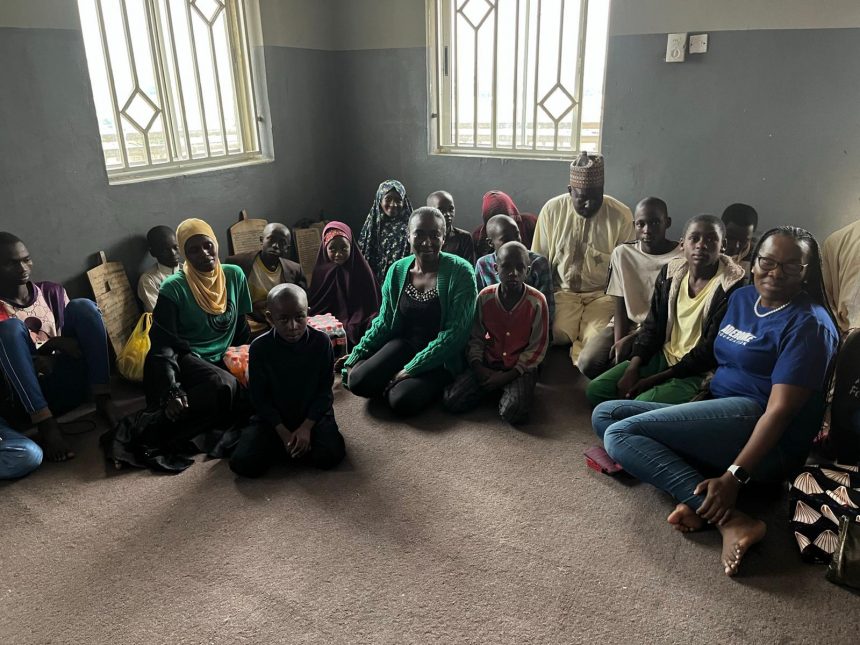In Nigeria, a significant portion of the estimated 20 million out-of-school children comprises the Almajiri, a group that has garnered increasing attention in recent years due to the precarious circumstances faced by these vulnerable youngsters.
The Almajiranci system, prevalent in northern Nigeria, raises several pressing concerns, including the absence of formal education, economic hardship, social integration challenges, child rights and welfare issues, as well as concerns regarding health, sanitation, and security.
Aderonke Foundation continues to stand as a prominent Non-Governmental Organization (NGO) at the forefront of efforts to creatively empower Almajiri children with a more comprehensive education, ultimately improving their quality of life.

Dr. Aderonke Kujore Adelekan, the Executive Director of Aderonke Foundation, shed light on her organization’s mission in an interview with The Herald.
Read Also: Youth Leadership Alliance Project holds Leadership Development Workshop for Teens
She articulated her foundation’s commitment to ensuring that Almajiri children receive a well-rounded education, stating, “Nigeria has an alarming statistic of approximately 20 million out-of-school children, a significant portion of whom are Almajiri. I am resolute in my determination to discover innovative avenues to provide these Almajiri children with the education they need to thrive and become valuable citizens of Nigeria.”
Dr. Adelekan elaborated on the foundation’s overarching vision, saying, “We are focused on child education. To this end, we have engaged in advocacy efforts with the National Assembly, actively contributing to the development and passage of the Almajiri and Out-of-School Children Bill in the 9th National Assembly. Beyond our legislative efforts, we recently initiated collaborations with Islamic scholars responsible for Almajirai, enabling us to enroll some of these children in formal schooling and provide them with essential literacy and computer education. Our ultimate aspiration is to reach every Almajiri child, leveraging the existing relationships with the caretaking Islamic scholars.”



When discussing the specific target demographic of the foundation’s work, Dr. Adelekan explained, “Our focus is all Nigeria’s underserved children and the Almajiri are a significant part of this group. They are young boys who leave their homes in search of Islamic knowledge. Almajirai is a term derived from the Arabic word ‘Al muhajirun,’ signifying ’emigrant.’ The ones we are targeting are typically from disadvantaged backgrounds; so many of them end up begging on the streets. Our mission is to ensure that all Almajiri receive a proper education.”
Dr. Adelekan further disclosed that while the foundation currently spearheads these efforts to provide literacy and computer education, it remains open to collaborating with like-minded individuals and organizations, both locally and internationally, who share similar objectives.
Looking ahead, Dr. Adelekan shared her optimism, stating, “Within a year, we hope to establish numerous additional partnerships with Islamic schools and teachers, enabling their students to acquire reading, writing, and computer proficiency. Our commitment to this cause remains unwavering.”
Aderonke Foundation’s dedication to uplifting Almajiri children through education and skills development represents a beacon of hope for these marginalized individuals in Nigeria.



Leave a Reply